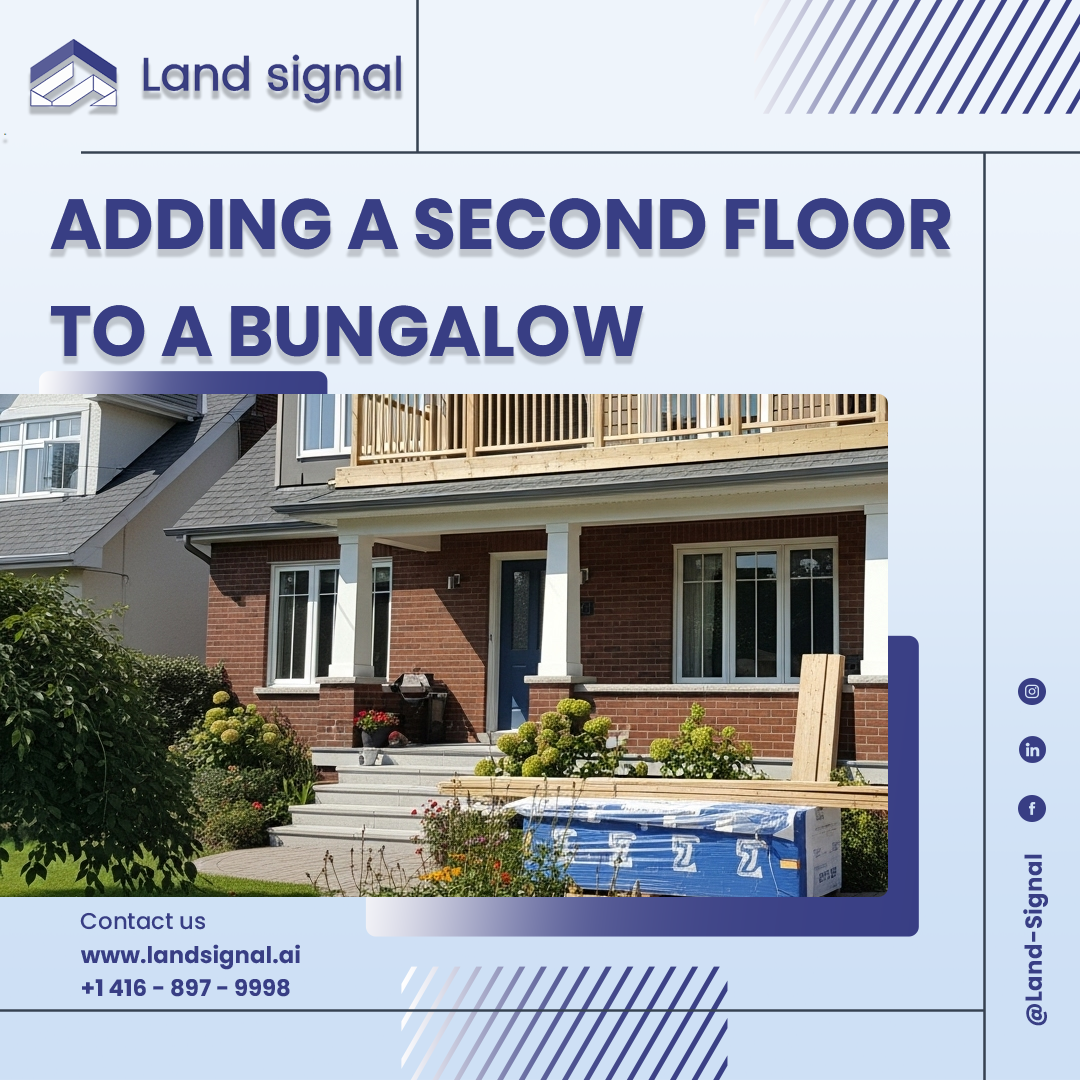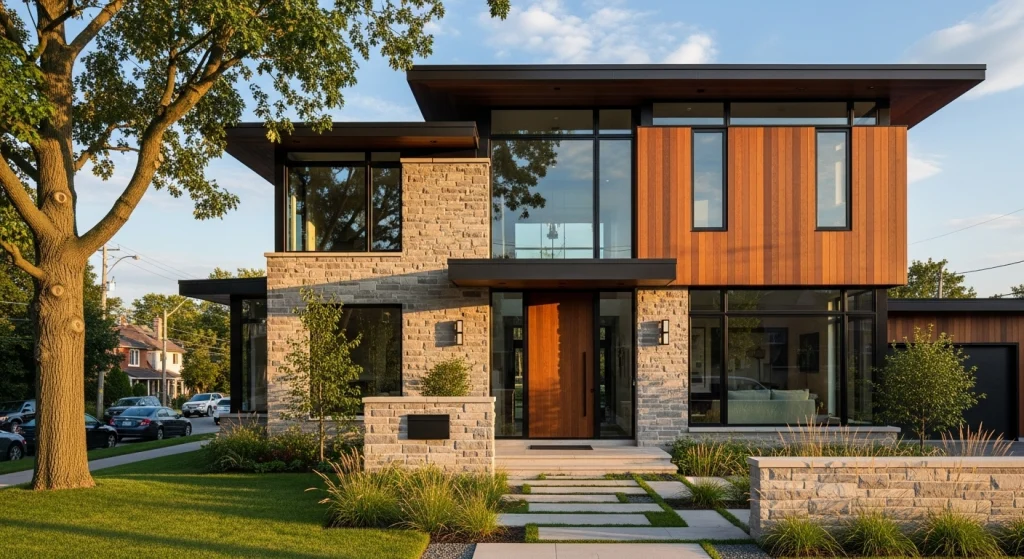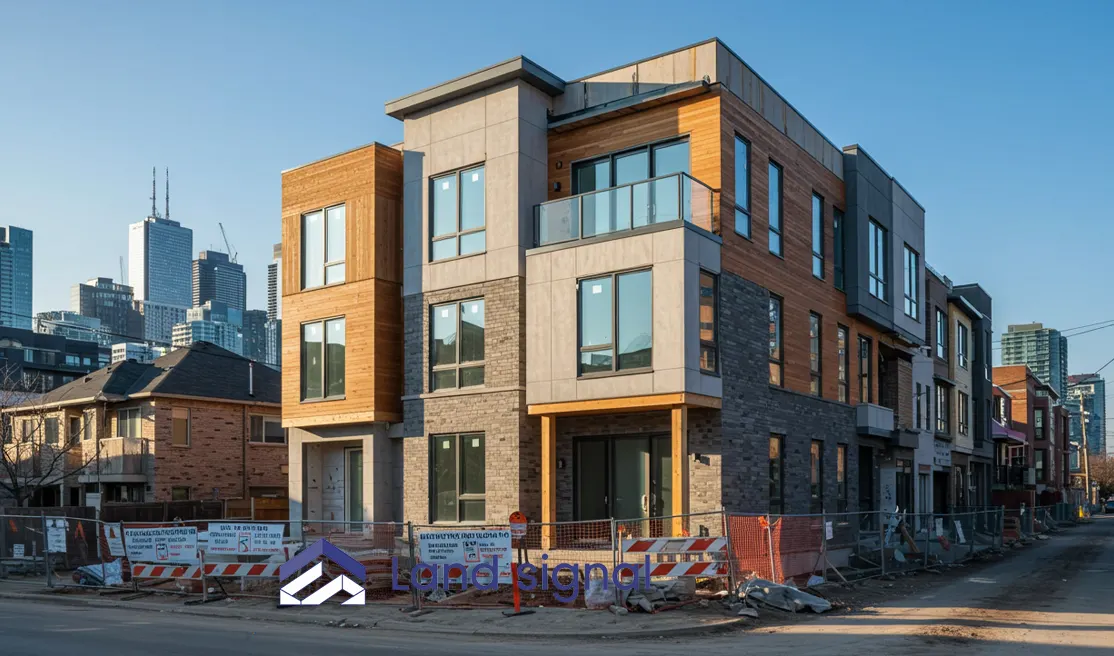Building your dream home should be fun. But filling out the forms can be really overwhelming. The path to approval is filled with difficult zoning laws. Mistakes can lead to expensive delays and make people really frustrated. This guide will make your trip easier. We will explain the most important stages, common problems, and how professional help can help. The first thing you need to do to make sure your custom home build in Toronto goes smoothly and is exactly what you want is to understand the process for getting a Custom Home Permit.
Start Your Project with Confidence
At Land Signal, we assist with construction and renovation permits, as well as Garden House and Laneway Suite designs. Let our experts guide you through every step.
Key stages of the custom home permit process
To get your permit, you need to follow a very clear path. Each step is very important to make sure your project is safe and meets the law. To do this well, you need to prepare carefully and pay close attention to detail from the start.
Let’s go through the most important steps you will take to get that final approval.
- Zoning Bylaw Review & Certificate: Before any design work begins, you must review the local zoning bylaws. This critical first step confirms if your vision is feasible on your property. If it complies, you will need to obtain a Zoning Certificate, which is a prerequisite for the building permit application itself. Should your project not comply, you may need to apply to the Committee of Adjustment, a separate and often lengthy process.
- Design and Documentation: With zoning compliance confirmed, your architect and engineer will prepare a complete set of technical drawings. This package includes detailed site plans, floor plans, elevations, and structural details. It must also cover systems like HVAC and plumbing, which often require their own specific permits.
- Application Submission: Your full application package is submitted through the City of Toronto’s online portal. This must be a complete submission. Even minor errors or missing documents can result in an immediate rejection, forcing you back to the start.
- Municipal Review: City officials, known as plan examiners, will review your submission in detail. They meticulously check for compliance with the Ontario Building Code (OBC) and all other applicable laws. This review phase can take anywhere from 10 to 30 business days, depending on project complexity.
- Permit Issuance & Inspections: Once every department has approved your plans, the construction permit is issued. You must typically begin construction within six months. Throughout the build, mandatory city inspections will occur at key stages like the foundation, framing, and final occupancy to ensure the work matches the approved plans.
Common delays and how to avoid them
Delays are the biggest reason for stress and budget overruns in any construction project. The permit process is often where things go wrong for the first time. If you know the common problems people have, you can save yourself a lot of time and money.
Here are the most common reasons for delays and how our expertise can help you avoid them. Getting a permit to build a custom home in Toronto can be hard.
- Incomplete or Inaccurate Applications: This is the most common pitfall by far. A missing form, an incorrect calculation, or a drawing that lacks sufficient detail will stop your application in its tracks. A professional review before submission is the best prevention.
- Zoning Compliance Issues: Unexpected zoning problems are a major cause for delays. Your design may violate bylaws related to height restrictions, property line setbacks, or lot coverage. A thorough upfront zoning review is crucial to identify and address these issues early.
- Slow Inter-Agency Coordination: The permit approval process often requires sign-off from multiple city departments. Coordination between these different bodies can be slow and unpredictable, adding weeks or even months to the timeline.
The important role of a good contractor in applying for a permit
While an architect creates the vision, you need different skills to deal with the city’s bureaucracy. An experienced contractor or permit specialist is much more than a builder; they are the person who is in charge of your project and will make sure everything goes smoothly. They know the Ontario Building Code and Toronto’s specific requirements very well, which is extremely useful.
A good contractor will think about what questions the examiner might ask and make sure that your application package gives the answers straight away. This proactive approach helps avoid the back and forth that causes so many delays.
What’s more, these experts often have good working relationships with city staff, which can help solve problems quickly. They make sure your plans are not just beautiful, but can also be built and are completely legal. This protects you from having to stop work or being fined.
To do this, you need to know a lot about the area. At Land Signal, we specialize in understanding zoning bylaws and managing the entire application process. We’ll take care of all the paperwork and make sure everything runs smoothly with the city, so you don’t have to worry about any costly delays.
Conclusion
You can build your own custom home in Toronto. The key to a smooth journey is understanding the path and preparing carefully for the challenges on it. From the first design ideas to the final city approval, planning ahead can help you deal with problems and budget issues. With a solid strategy and expert support, getting your Custom Home Permit in Toronto is the first step in making your unique vision a reality.
FAQ
In addition to the building permit, you often need related permits such as plumbing, HVAC/mechanical, and demolition permits if tearing down an existing structure, as well as any zoning approvals needed for setbacks or lot coverage.
Your application must include detailed architectural and structural drawings, site plans with zoning compliance, lot grading plans, and mechanical/plumbing layouts. Incomplete applications can delay approval.
Typical initial reviews for new home permits are counted in business days if the application is complete. Complex designs or sites that require zoning variances can extend the timeline significantly.














